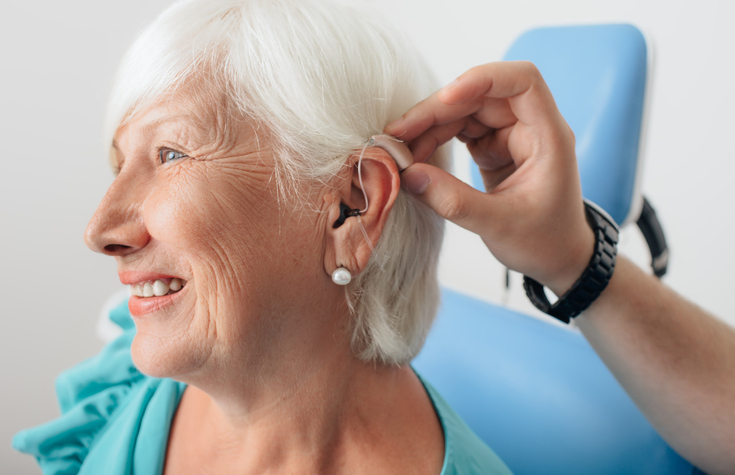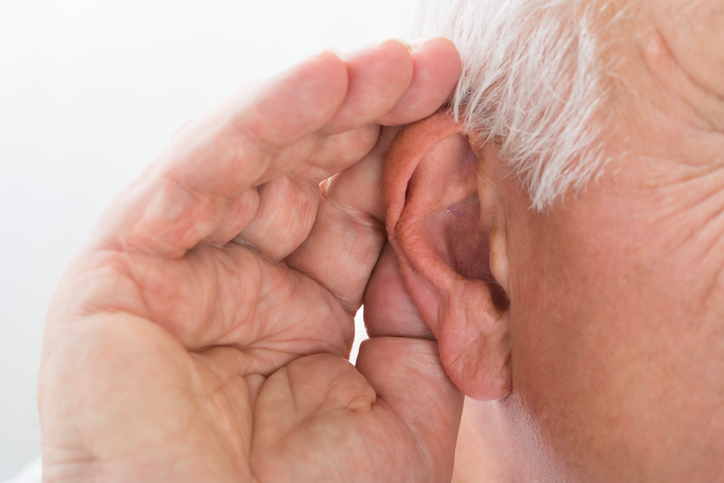One of the most common medical concerns affecting Americans today is hearing loss. The treatment varies depending on each patient, including the degree of hearing loss, the underlying cause, the type of hearing loss, and different lifestyles. Getting a hearing test and a comprehensive evaluation from a local ENT specialist is the first step if you have symptoms of hearing loss.
Why is treating hearing loss important?
Untreated hearing loss in children has a detrimental influence on social interaction, learning, and language development. Communication can be difficult for people with hearing loss. Also, untreated hearing loss is linked to several medical and mental problems for people who are approaching retirement. For example, cognitive deterioration, depression, trips, and falls.
What are the 4 types of hearing loss?
Sensorineural hearing loss, conductive hearing loss, mixed hearing loss, and ANSD (Auditory neuropathy spectrum disease) are four types of hearing loss.
-
Sensorineural Hearing Loss
Hearing loss caused by sensorineural problems occurs when the inner ear (cochlea) or the acoustic nerve is affected. Exposure to loud noises, disease (meningitis), taking ototoxic drugs, heredity, or aging can all be part of the reason to cause the issue.
Treatments for sensorineural hearing loss
Sensorineural hearing loss is permanent. The most effective treatment for sensorineural hearing loss is a hearing aid. Cochlear implants might be suggested in specific circumstances.
- Hearing aids: Your hearing loss specialist will work with you to calibrate them to your particular hearing loss during a procedure known as fitting. A hearing aid’s primary function is to amplify sound within the frequency ranges you need, it will not cure your hearing loss. Hearing aids can be carefully personalized to your hearing requirements, boosting the noises you need and reducing the ones you do not. They don’t quite mirror normal hearing, but they perform very well for those with mild to moderate hearing loss.
- Cochlear implants: When hearing aids are not enough for a patient, the hearing doctor will recommend patient cochlear implants. Cochlear implants are available for children, adults, and seniors and are typically covered by insurance plans, unlike hearing aids.
-
Conductive Hearing Loss
When something blocks sound from entering the inner ear through the outer or middle ear, it results in conductive hearing loss. This can happen if earwax or fluid accumulates in the ear canal or if the eardrum or middle ear bones are damaged (ossicles). A congenital abnormality, such as atresia or microtia, may also prevent sound waves from reaching the ear and stimulating the acoustic nerve.
Treatment for conductive hearing loss
Treatments for conductive hearing loss typically include an ear, nose, and throat doctor’s intervention to diagnose the particular cause. Conductive hearing loss typically indicates an anatomical obstruction, such as otosclerosis, that prevents sound from reaching the inner ear. Surgery may be beneficial if you have a bone or anatomical issue.
A hearing loss professional will combine hearing aids treatment or the surgical implantation of a bone-anchored hearing system if the surgery is not enough for hearing loss.
-
Mixed Hearing Loss
A person may experience both conductive and sensorineural hearing loss at the same time. This situation is considered mixed hearing loss which is associated with the inner ear as well as the outer or middle ear. Mixed hearing loss may result in more severe hearing loss.
Treatment for mixed hearing loss
Depending on the severity of the hearing loss, your ENT doctor might suggest different treatments. However, cochlear implants and hearing aids may be necessary.
-
Auditory Neuropathy Spectrum Disorder (ANSD)
Auditory neuropathy spectrum disease (ANSD), a difficulty with sound transmission from the inner ear to the brain, causes hearing loss. ANSD can be caused by some factors. In rare circumstances, damaged inner ear hair cells prevent the proper transmission of sound information to the brain. Auditory neuropathy spectrum disease can be brought on by a genetic mutation or damaged auditory nerve.
Treatment for Auditory neuropathy spectrum disease (ANSD)
On a hearing test, people with ANSD may appear to have positive results, but they may have trouble understanding spoken words. A hearing aid or cochlear implant used in conjunction with a hearing-assistive technology (HAT) system may be able to lessen the impact of this hearing loss in some circumstances. But in more extreme situations, where the person has a lot of trouble understanding speech, it can be necessary to employ a visual communication method like sign language or an image exchange system (PECS).
Can hearing loss be cured or repaired?
Although there are no hearing loss treatments that can treat or reverse hearing loss, there are various approaches that can improve hearing to a level that allows for a normal conversation. The common treatments that experienced otolaryngology would suggest are hearing aids, cochlear implants, and surgery if a patient has bone or anatomical issues in their middle ear.
Get Help With Hearing Loss Problems Today
Dr. Madison Richardson is Beverly Hills’ top board-certified surgeon that specializes in ear, nose, and throat issues. Dr. Richardson is an experienced otolaryngologist with 40+ years of experience. If you are experiencing any symptoms of hearing loss, please contact us at (310)360-9520.


